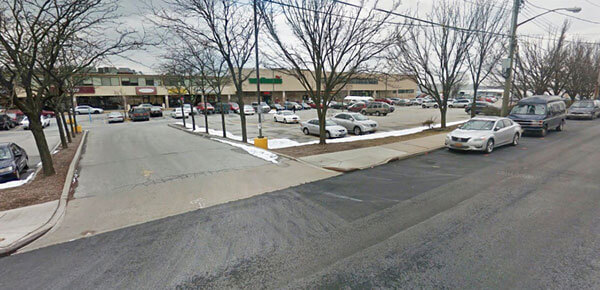By Gina Martinez
A strip mall in Whitestone is once again being looked into for soil contamination. State Sen. Tony Avella (D-Bayside) sent a letter to the state Department of Environmental Conservation asking for any information regarding contaminated soil.
The query came after a business owner in the strip mall advised Avella that at least one agency has been at the property and engaged in a study involving the installation of some type of “gauge” in the floors of the Astoria Federal Savings Bank.
The bank is located in Whitestone Shopping Center, a 62,000-square-foot property on 153-01 10th Ave., which includes a Waldbaum’s supermarket, Subway restaurant, Sunshine Spa & Hair Salon, Cascarino’s Pizza and J.D. Optician.
In his letter Avella asked the DEC to “Please advise me of any information you have regarding possible soil contamination at this location and what efforts your agency has undertaken to address the situation.”
The DEC commissioner, Basil Seggos, replied to Avella’s inquiry advising him that the agency has continued its testing because of results found in previous tests. Earlier environmental investigations on the property by the DEC found traces of the dry cleaning chemical tetrachloroethylene at concentrations above regulatory levels in groundwater and soil vapor, Seggos wrote.
Tetrachloroethene is a manufactured chemical commonly used in the dry cleaning of fabric, and its degradation products trichloroethene, dichloroethene and vinyl chloride.. It is considered a probable human carcinogen. People can be exposed to tetrachloroethene, also known as PERC, in air, water and food, according to the state Department of Health, as well as through skin contact.
The former Johnny on the Spot Dry Cleaners is adjacent to the Astoria Federal Savings Bank. The dry cleaners closed in 2004 and the site has remained vacant since then, but its impact is still felt in surrounding stores at the strip mall. The dry cleaners qualified to be part of a brownfield cleanup program. According to the DEC, a brownfield site has to be “any real property where a contaminant is present at levels exceeding the soil cleanup objectives or other health-based or environmental standards, criteria or guidance adopted by DEC that are applicable based on the reasonably anticipated use of the property, in accordance with applicable regulations.”
Saggos’ letter goes on to say that the contamination from the dry cleaners has been detected under other tenants in the mall.
“Sampling indicates that the soil vapor and groundwater contamination extends beneath some of the adjacent tenant spaces and sidewalk,” he said. “DEC had been working with the leaseholder for the site, the Great Atlantic & Pacific Tea Company Inc., under a brownfield cleanup agreement to complete additional investigation work and develop a remedial plan to address contamination at the site.”
Soil vapor data collected at the Astoria Federal Savings Bank in June 2013 were elevated, so A&P consultants performed a cleanup of the dry cleaning space in September 2013 to remove potential indoor sources of vapor, Seggos said. Testing in October 2013 showed significant improvements to the indoor air in the bank to levels comparable with background concentrations, Seggos said.
When A&P declared bankruptcy in July 2015, the work was temporarily put on hold as the DEC negotiated with property owners on the environmental conditions at the site.
According to Saggos “Those negotiations have concluded and the site owner has submitted an application to take over the obligations of A&P,” he said. “Once the agreement is executed with the owner, the first priority will be to complete the investigation in the adjacent tenant spaces and to develop a plan to address any contaminant exposures identified.”
Reach Gina Martinez by e-mail at gmart

































